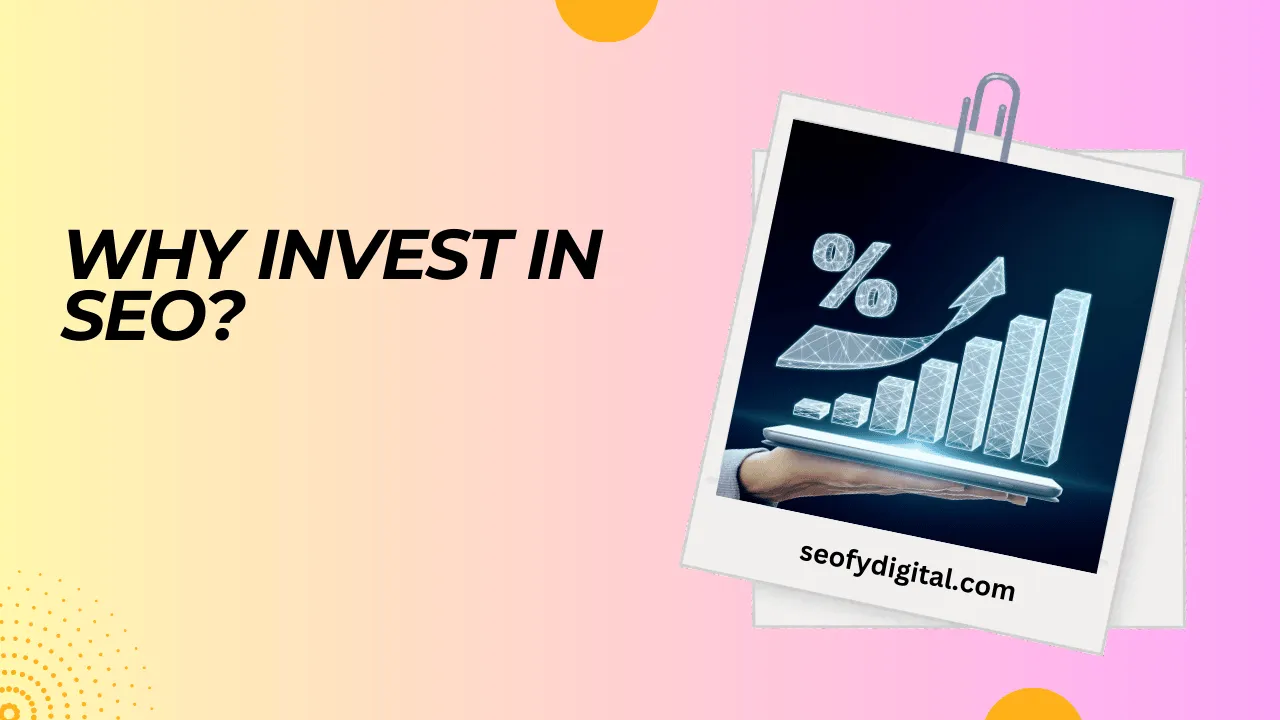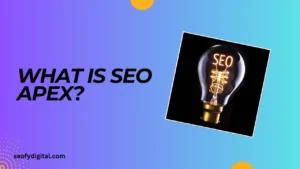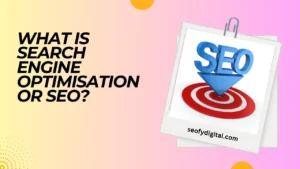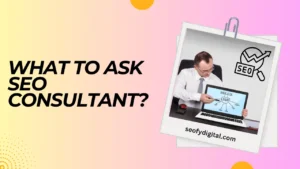In today’s digital world, SEO (Search Engine Optimization) is more than just a buzzword; it’s the cornerstone of successful online businesses. Did you know that 93% of online experiences begin with a search engine?
That means if your website isn’t visible on the first page of Google or other search engines, you could be missing out on a massive amount of potential traffic and revenue. Whether you’re a small business owner or managing a large corporation, investing in SEO is no longer optional — it’s essential.
The benefits of SEO go far beyond simply getting more visitors to your site. SEO helps businesses of all sizes build their brand, increase credibility, and ultimately boost sales. But what does it take to make SEO work for you?
In this article, we will delve into the crucial elements of a successful SEO strategy, its undeniable benefits, and the potential risks that come with it. By the end, you’ll have a clear understanding of why SEO is a key investment for any business looking to thrive online.
So, if you’ve been wondering whether SEO is worth the investment, let’s break it down. From increased organic traffic to long-term returns, we’ll cover all the important aspects that make SEO a critical component of your digital marketing strategy.
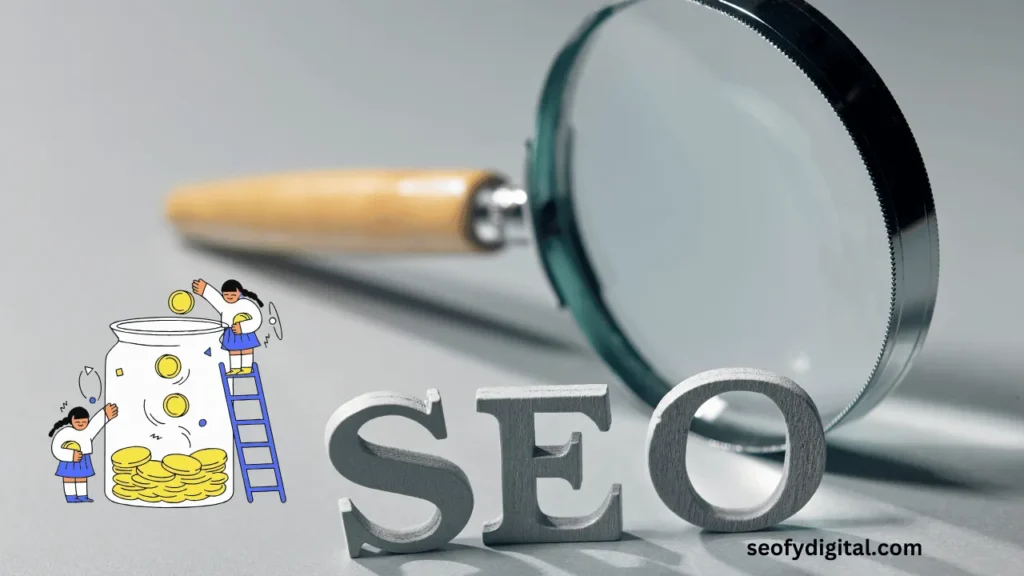
Contents
The Benefits of SEO
Increased Organic Traffic
One of the most significant advantages of SEO is increased organic traffic. When your website ranks higher on search engine results pages (SERPs), it attracts more visitors without having to pay for ads.
Studies show that 53% of website traffic comes from organic search, which means the higher your site ranks, the more traffic it will receive. With effective SEO, your site can achieve long-term visibility, bringing in consistent and relevant traffic that aligns with your target audience.
Improved Brand Visibility
Another major benefit of SEO is the improved visibility it brings to your brand. Being listed on the first page of Google increases your brand awareness, as users are more likely to trust businesses they find at the top of search results.
SEO helps you establish credibility in your industry, which makes customers more likely to choose your brand over competitors who are not optimizing their websites.
Higher Conversion Rates
SEO not only brings more visitors to your website, but it also helps convert them into customers. Websites optimized for SEO are more likely to attract high-quality leads who are already interested in your products or services.
Studies show that SEO leads have a 14.6% close rate, which is significantly higher than outbound leads like direct mail or paid ads. By targeting the right keywords and improving your website’s user experience, you can increase your conversion rates and drive more sales.
Long-Term ROI
Unlike paid advertising, SEO offers a long-term return on investment (ROI). Once you’ve implemented a solid SEO strategy, the results can continue to pay off over time. It’s not just about short-term gains — SEO builds lasting momentum. The higher your site ranks and the more authoritative it becomes, the easier it is to maintain top rankings with less effort and cost. Over time, this sustained growth leads to consistent traffic, leads, and sales that help your business thrive.
Key Elements of a Successful SEO Strategy
Keyword Research
Effective keyword research is the foundation of any successful SEO strategy. By identifying the right keywords and phrases that your target audience is searching for, you can tailor your website content to match user intent.
This ensures that your site is discoverable by people who are actively looking for your products or services. Tools like Google Keyword Planner or Ahrefs can help identify high-traffic keywords that will boost your website’s performance.
On-Page SEO
On-page SEO refers to optimizing the elements of your website that are directly under your control. This includes title tags, meta descriptions, header tags, and image alt text. Each of these elements plays a crucial role in making your website more search-engine-friendly and improving the user experience.
By ensuring your pages are well-structured, with relevant content and optimized for keywords, you make it easier for search engines to crawl and index your site.
Off-Page SEO
Off-page SEO focuses on improving your website’s authority and reputation through backlinks and social media engagement. Backlinks from high-quality, authoritative websites signal to search engines that your content is trustworthy and valuable.
The more credible links pointing to your website, the higher you can rank in search results. Building a strong social media presence and engaging with other online communities also boosts your off-page SEO.
Technical SEO
Technical SEO ensures that your website is technically optimized for search engines. This includes improving website speed, mobile optimization, and ensuring a clean and crawlable site structure.
Websites that load quickly, are mobile-friendly, and have a clear navigation structure tend to rank higher in search results. Mobile optimization is especially important, as more than half of global web traffic comes from mobile devices.

The Challenges and Risks of SEO
Constant Evolution
One of the main challenges of SEO is its constant evolution. Search engines like Google frequently update their algorithms, and staying updated with the latest trends and best practices is essential.
This means that SEO strategies that worked in the past may not always be effective in the future. As a result, businesses must be willing to adapt and stay ahead of the curve to remain competitive.
Time-Consuming
SEO is not an instant solution. It takes time to see results, especially in competitive industries. Implementing an effective SEO strategy requires ongoing efforts and regular updates.
For businesses looking for quick returns, SEO might not be the best choice unless they are willing to invest the necessary time and resources.
Potential for Black-Hat Tactics
Some businesses may resort to black-hat SEO techniques, such as keyword stuffing or buying backlinks, in an attempt to rank faster. While these tactics may provide short-term gains, they can lead to penalties from search engines and harm your website’s reputation.
It’s important to stick to ethical SEO practices to build a sustainable online presence.
Measuring ROI
Measuring the return on investment (ROI) from SEO can be challenging. Unlike paid advertising, SEO doesn’t offer immediate metrics that show how much money you’ve earned per click.
However, by tracking organic traffic, conversion rates, and keyword rankings, businesses can measure the effectiveness of their SEO efforts over time.
Case Studies of Successful SEO Campaigns
Small Business Success Story
Take, for example, a small online retailer that invested in SEO. By targeting the right keywords, improving their website’s user experience, and building backlinks, the company was able to increase organic traffic by 200% within six months.
As a result, they saw a significant increase in sales and gained a competitive edge in their industry.
Large Corporation Success Story
Even large corporations use SEO to maintain their market dominance. One such example is a multinational company that implemented a comprehensive SEO strategy. By focusing on technical SEO and optimizing their content, they managed to outperform competitors, increasing their visibility and revenue.
Conclusion
In conclusion, investing in SEO is one of the most effective ways to enhance your online presence, increase traffic, and generate more leads. The benefits of SEO — from improved brand visibility to long-term ROI — make it an essential component of any digital marketing strategy.
While there are challenges involved, such as staying updated with SEO trends and the time required for results, the payoff is more than worth the investment.
If you’re not already prioritizing SEO, now is the time to start. The future of online business is digital, and SEO will continue to play a crucial role in helping businesses succeed. Don’t miss out on the opportunity to grow your brand and drive more sales through the power of SEO.
FAQs
1. How long does it take to see SEO results?
SEO is a long-term investment, and it typically takes 3-6 months to start seeing significant results. The timeline can vary depending on the competitiveness of your industry and the effectiveness of your SEO strategy.
2. How much does SEO cost?
The cost of SEO varies depending on the scope of your project, the agency you hire, and the level of competition in your industry. Basic SEO services can cost anywhere from $500 to $5,000 per month.
3. Can I do SEO myself?
Yes, businesses can handle basic SEO on their own, but hiring an expert can yield better results. SEO professionals stay updated with the latest trends and have the expertise to implement effective strategies.
4. What are backlinks and why are they important for SEO?
Backlinks are links from other websites to yours. They are important because they signal to search engines that your site is trustworthy and relevant, which can help improve your rankings.
5. Does SEO work for all businesses?
SEO can benefit almost any business with an online presence. It’s especially valuable for businesses that want to attract local customers or compete on a national or global scale.
6. What are black-hat SEO techniques?
Black-hat SEO refers to unethical techniques, such as keyword stuffing and buying fake backlinks, that aim to manipulate search engine rankings. These tactics can result in penalties and harm your website’s reputation.

